RIO DE JANEIRO, BRAZIL – In the course of the 2008 financial crisis, right-wing populist and far-right-wing parties and movements have gained support and political relevance worldwide.
A global shift to the right can be observed, in which right-wing populist positions have become more socially acceptable and authoritarian government practices have intensified.
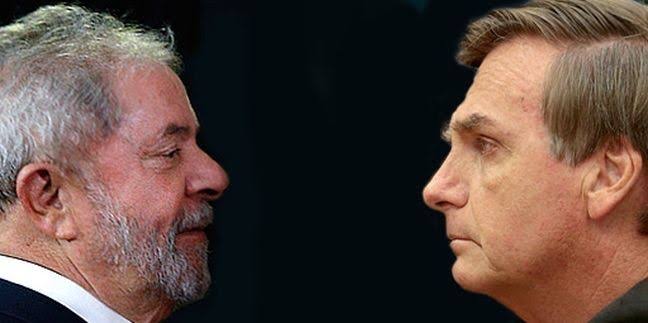
In Europe, parties such as the Rassemblement National in France (until June 2018, the National Front), the Alternative for Germany (AfD) in Germany or the Lega (formerly Lega Nord) in Italy, achieved significant electoral successes and have since changed the political culture.
In many Arab countries, the “Arab Spring” was followed by civil wars, forms of jihadism or the rule of the military. In India, the Philippines or Thailand, presidents operate with an extremely authoritarian political style.
And in Latin America, too, political rights have been revitalized in many countries, revising the democratization processes and social achievements of the past decades.
Contrary to their anti-democratic understanding, right-wing populist and far-right-wing candidates prevailed in democratic elections – whether in 2014 the now re-elected Narendra Modi in India, Rodrigo Duterte in 2016 in the Philippines, or Jair Bolsonaro in 2018 in Brazil.
They achieved their success with the same election campaign strategy. They radicalized the social discourse and staged themselves in the election campaign as “cleansers” and as an alternative to the political establishment.
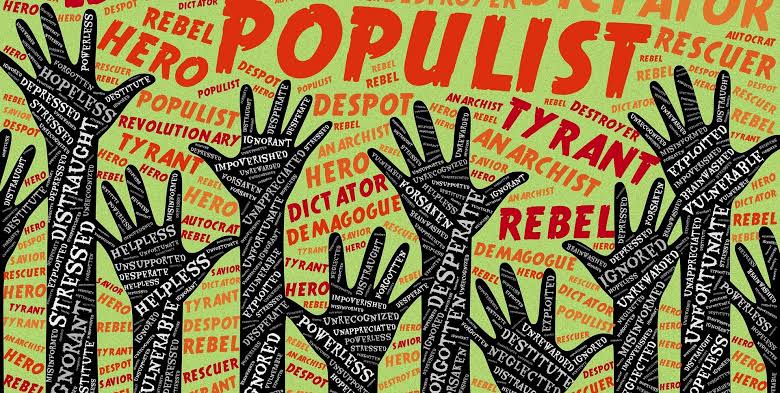
Instead of using social or economic policy concepts, they won the elections with the pledge of fighting crime and cleaning up corruption. The right-wing populist succeeded in taking over the fight against corruption and making it the dominant theme of the election campaign.
The Brazilian case study
Using Brazil as an example, this article traces how relevant the instrumentalization of corruption and the politicization of corruption investigations were for the electoral success of right-wing populists like Bolsonaro.
Bolsonaro’s victory in October 2018 was based on the fact that the right-wing politician was able to exploit for his own purposes the politically heated mood in the country and the widespread conviction that corruption was Brazil’s greatest problem.
This strategy also included declaring the left-wing Worker’s Party (PT), which had governed the country between 2003 and 2016, the center of corruption.
On the other hand, the politically motivated conviction and imprisonment of ex-president Luiz Inácio Lula da Silva (PT) in the Lava-Jato investigations prevented the re-election of the popular left-wing politician, who had always been ahead of Bolsonaro in the polls.
Lava Jato: century process with a focus on the left
Of core significance for the political instrumentalization of the corruption issue in Brazil is the so-called operation and later special investigation body – Lava Jato.
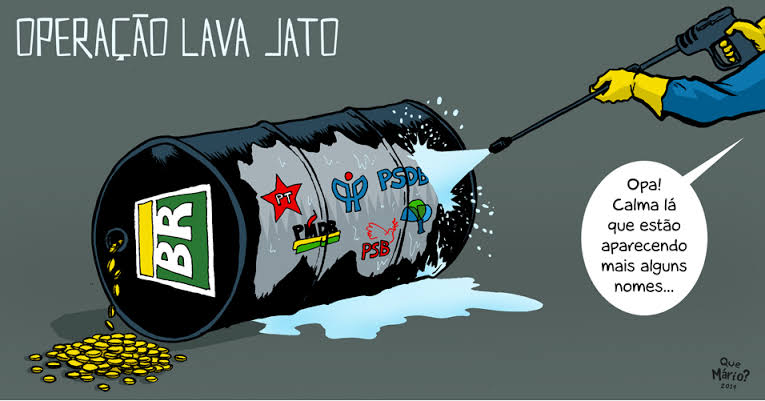
In 2014, the Federal Prosecutor’s Office (MPF) commissioned investigators to uncover the extensive corruption network around the state-owned oil company Petrobras between politicians of the ruling parties, construction companies, and Petrobras officials.
For years, leading construction companies had paid bribes to individuals and parties in exchange for Petrobras’ public and overpriced contracts. Enabled by the rising prices of raw materials on the world market, the company had become the engine of the Brazilian economy during the Lula governments. Since 2008, the company has ranked among the continent’s three largest corporations in terms of market value.
The PT-led governments under Lula (2003-2011) and Dilma Rousseff (2011-2016) took advantage of this. By awarding contracts to the domestic industry, they developed and promoted the growth of the oil giant.
While the investment volume of the Petrobras was approximately US$2 (R$8) billion in 2002, a decade later it was around US$3.5 billion per month. A million jobs were dependent on the state-owned company. The gas and oil sector, on which Petrobras had a monopoly, contributed 13 percent of the gross domestic product (GDP) in 2014.
Politicians from 14 parties filled positions in Petrobras’ administrative organization and received “donations” to party coffers for awarding overpriced contracts.
In 2014, the system of party financing and personal enrichment was blown up. This developed into a mammoth process. In the following year, the Federal Prosecutor’s Office indicted 2,000 people for unlawful enrichment. In 2016, it investigated 26,000 cases.
Proceedings were opened against more than 50 members of Congress and governors. There were 1,261 arrests worldwide. By April 2016, 155 contractors, Petrobras officials and politicians had been convicted to prison sentences totaling 2,242 years.
Approximately R$2.5 billion were returned to Petrobras. In the course of these investigations, the Lava-Jato prosecutor Deltan Dallagnol and the federal judge in charge, Sérgio Moro, achieved hero status among large parts of the population. Because of his unwavering fight against the “monster corruption”, Moro was henceforth depicted on magazine covers or posters in a Superman costume.
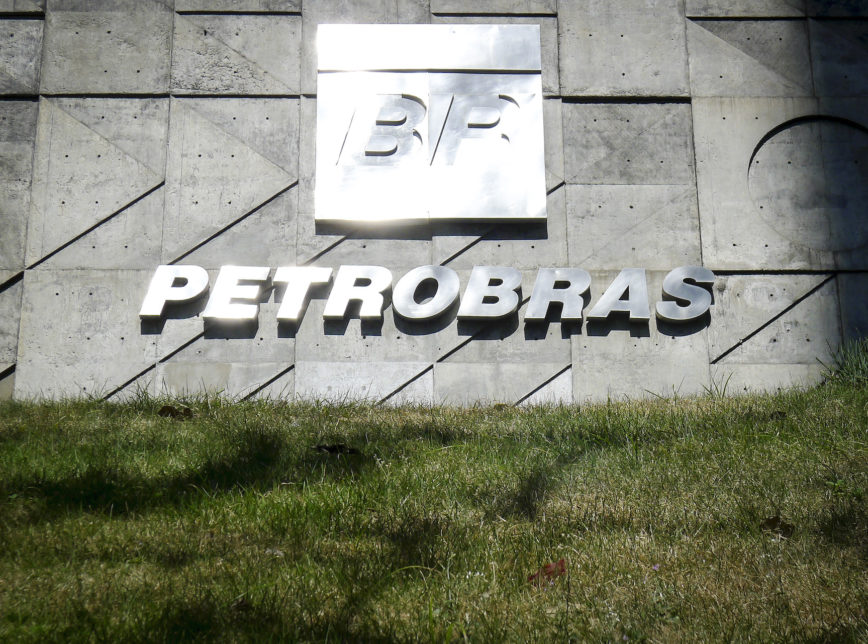
There is no doubt that the Worker’s Party (PT) profited from “donations” in the millions from companies in the Lava-Jato Complex. In total, however, the right-wing conservative government partners of the PT had made considerably more use of the contracts, which is reflected in the number of investigations.
While ten leading PT politicians were targeted by Lava Jato, the right-wing liberal government partner ‘Partido Progressista’ (Progressive Party – PP) had more than 30 politicians and at least ten from the right-wing conservative ‘Partido Movimento Democrático Brasileiro’ (Bazilian Democratic Movement Party – PMDB), which provided the then vice-president and later president Michel Temer (2016-2018).
Nevertheless, the investigators focused on the PT. The special investigative agency Lava Jato was particularly eager to investigate PT figures. They were better able to scandalize these successes, after all, the PT had once been an alternative to the corrupt old parties.
PT leader Lula had also won his first presidential election in 2002 because he had credibly pledged an end to corruption. Therefore, the outrage regarding a corrupt PT was much greater than that of other parties, which in turn provided political backing for Operation Lava Jato.
However, the investigators’ selective approach was not only aimed at attracting media attention. As reports from the investigative journalistic website ‘The Intercept’ suggest, the Lava Jato players did not act independently but rather pursued a political agenda.
The telegram communications between chief prosecutor Dallagnol and the then judge Moro and other colleagues, which have been disclosed in stages since early June 2019, show that Moro and Dallagnol abused their offices and, under the pretext of fighting corruption, often violated the rule of law in order to promote a change of government.

It appears that the central aim of the investigators was to place Lula behind bars, to prevent his candidacy in the 2018 elections and thus to rule out a return to power for the PT.
Today it seems clear that Bolsonaro owes the presidency to a judicial conspiracy against the more promising candidate Lula. On July 12th, 2017, Judge Moro sentenced the former head of state to nine years and six months imprisonment in a trial that was criticized worldwide.
Lula was found guilty of having received R$3.7 million in the form of construction work in an apartment from the construction company Construtora OAS in return for mediated business.
The published Lava-Jato communications, however, corroborate that Chief Prosecutor Dallagnol had originally considered the evidence for an indictment against Lula to be insufficient (after Prosecutor Pozzobon had already stated at the time of the indictment that “we do not have complete evidence”).
In the conducted chat, Dallagnol had denied that the indictment material had the quality of evidence, but rather that it was “indirect evidence”. Against their better judgment, the investigators indicted Lula. After consulting Moro, as the intercept leaks suggest, they could still expect a conviction.
Moro based his verdict against Lula on the testimony of crown witness Léo Pinheiro, head of the construction company OAS. Originally, the entrepreneur had insisted that Lula was innocent in the apartment case.
Crown witnesses are characterized by the fact that they – themselves accused – are not committed to the truth in order not to incriminate themselves. Concurrently, they can expect a considerable reduction in their sentence if they provide evidence that leads to investigations or even charges against others.

For this reason, many lawyers consider agreements with key witnesses to be inadmissible. The Intercept leaks substantiate this criticism, as they document how the chief witness Pinheiro had to adjust his statement several times in secret to the prosecution until Moro accepted it for the indictment and for a conviction.
In the sentencing, Moro stated that a direct connection between Lula, Petrobras and the construction company OAS was not proven, “but there is sufficient evidence”. For the verdict, he created a new criminal offense – the so-called indefinite official act. According to this, he accused Lula of intending to occupy the OAS apartment in question in the indefinite future, namely “when the opportunity arises”, as stated in the judgment under point 865.21
In an interview, Moro explained that it was not a matter of “convicting or acquitting someone, but of convincing a country”. Six months later, in late January 2018, a court of second instance upheld Moro’s judgment and increased Lula’s prison sentence from nine and a half to twelve years and one month.
The President of the Court of Appeal and head of the three judges, Carlos Eduardo Thompson Flores Lenz, had previously disclosed in a newspaper interview that although he had not read the case file, he still considered Judge Moro’s verdict “sacrosanct”. “I liked the verdict. I will not deny it,” said Judge Thompson Flores Lenz. He could not issue a larger free ticket to the three appellate judges.
Moro intended to influence elections
When Lula ran for the presidential elections despite his conviction and led the polls unchallenged, Moro ordered the arrest of the PT candidate in April 2018. Only in August did the electoral court decide to exclude Lula from the election. However, the PT hesitated too long to nominate a replacement candidate. This secured Bolsonaro’s victory over the left-wing replacement candidate Fernando Haddad in the run-off vote in October 2018.
Fernando Haddad had only started the race five weeks earlier and had remained unknown to many PT supporters until the election itself. Nevertheless, the run-off vote was relatively close, with 32 percent for Haddad and 39 percent for Bolsonaro, particularly considering the 29 percent abstentions and invalid votes.
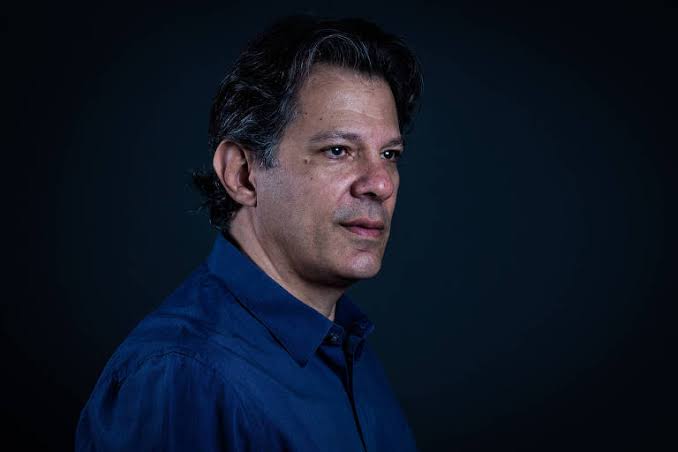
Against the background of a foreseeable close election outcome, Moro had tried to exert direct influence in the run-up to the election. One week before the first ballot on October 7th, 2018, the judge ordered the publication of parts of a hitherto secret leniency statement by PT celebrity Antonio Palocci, who is imprisoned for corruption.
The presented excerpts of the former minister’s interrogation only incriminated the PT, although Palocci had testified against half of Congress, as can be seen from the complete version of the testimony published in September 2019.
For the media, this news was a real find. In particular, the all-powerful media giant Globo published the news on all possible channels for a week. The neoliberal candidate Geraldo Alckmin of Judge Moro’s favored party ‘Partido da Social Democracia Brasileira’ (Brazilian Social Democracy Party – PSDB) freely admitted that this publication would have an influence on the outcome of the election.
To date, neither the police nor Palocci himself have been able to prove his claims. Due to the lack of evidence, the prosecutor’s office had refused to cooperate with Palocci. However, the federal police had acted on their own authority when they made him a key witness and lured him with a reduced sentence in return for information on Lula. In November 2018, Palocci was in fact released from custody and placed under house arrest after having incriminated Lula.
The demonization of the left
There has been widespread criticism of the Lava-Jato authority’s actions and doubts about their legality – including from judges at the Federal Supreme Court.
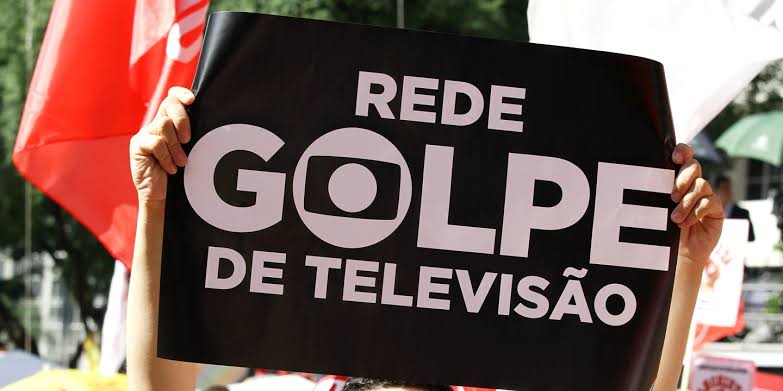
The latter often threatened to delegate parts of the investigation to other bodies. In response, the driving forces of the Lava Jato operation took the offensive and sought the support of the population by working to convince the public of the seriousness of the danger posed by the left-wing to the state and the corresponding need for consistent prosecution and conviction.
Regularly, the special prosecutors and Judge Moro leaked secret, often unsecured information to the sensation hungry press. The mainstream media knew how to reinterpret initial suspicions and circumstantial evidence into seemingly clear evidence. The aim was to convince a country of the left-wing guilt.
A substantial instrument for manipulating public opinion was the demonization of the left-wing. To this end, Judge Moro had Lula paraded from a large police contingent to a simple interrogation at dawn on March 4th, 2016.
TV helicopters accompanied the escort as if a mafia boss had been arrested – a peculiar procedure for a simple summons. And most Brazilians still remember how Dallagnol made a PowerPoint presentation in late September 2016 to explain the Petrobras’ corruption network.
At the center of his presentation was Lula’s name, the ‘comandante máximo’ (supreme commander) of corruption, as he baptized him, to whom all connections ran. He declared the PT to be a “criminal organization” with tentacles spreading into all areas of the state apparatus.
Globo took up the offer and made Lula the “head of a criminal gang”. The more rigorously Moro and Dallagnol fought the powerful PT, as their prestige grew further. At the same time, they repeatedly prevented investigations into party members of the neo-liberal PSDB.
Bolsonaro built his election campaign discourse on this backdrop. The right-wing candidate succeeded in 2018 in responding to fears of social decline by fighting corruption. With his call for order and righteousness, he brought together enemy images of different social groups and thus created a broad electorate of evangelicals, entrepreneurs, and members of the army.
Bolsonaro and his entourage were by no means concerned with strengthening the rule of law. At the time of the announcement of Bolsonaro’s Cabinet in late December 2018, nine of the 22 ministers were under police investigation. He himself and his sons are being investigated for illegal financial transactions, money laundering, criminal real estate transactions and links to the Mafia.
Bolsonaro sums up various enemy images
Several crises came to a head in the election year 2018. As a result of the financial crisis in 2008 and the collapse of prices for raw materials such as oil and soy, Brazil’s economic power had been continuously dropping since 2013.
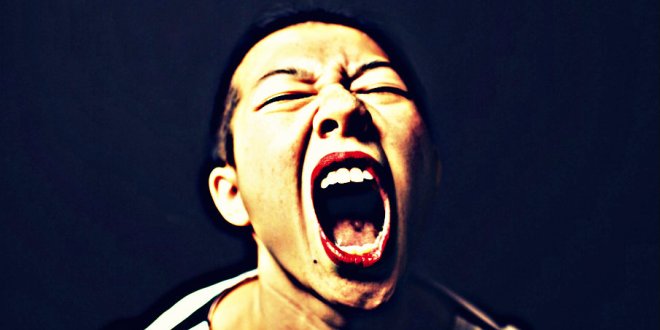
Private debt had increased by 43 percent between 2005 and 2015, and households spent a fifth of their income on interest on loans. For 2016, the Rousseff (PT) government had cut R$26 billion from the national budget. The housing and health sectors and the pension fund were massively affected. Public transport prices had risen dramatically, triggering the most massive demonstrations in the country’s history.
Meanwhile, the government had pumped around US$40 billion US into the “mega-events” of the 2014 Football World Cup and the 2016 Olympic Games.
Crime rose to record levels in these years. But although the victims were mostly poor and black people, the world’s highest homicide rate of 65,000 in 2018 fed the feeling of insecurity and the call for a firm hand among all classes.
The corruption disclosures had brought the established parties into disrepute, and the PT had not only come under particular fire from a politicized justice system and the superiority of right-wing conservative reporting but had been particularly disappointing as the only alternative to the establishment.
A large part of the population, struggling with fear of loss, called for radical solutions in view of the pessimistic panorama and made (verbal) norm violations the political currency.
This played particularly into the hands of Bolsonaro’s radical discourse. “Political correctness” was equated with the establishment, “diversity” equated with disorder, “gender” was declared a taboo word and recipients of state benefits turned into parasites.
Right-wing election propaganda accused the leftists, namely the Workers’ Party, of wanting to “enslave” the Brazilian people with expropriations along the lines of Cuba’s model and to line their own pockets.
The Evangelicals in particular, Bolsonaro’s most important group of voters, created an apocalyptic scenario between good and evil and longed for a Messiah. Bolsonaro promised Brazil “an unprecedented cleansing”. “The red outlaws will submit to our law. They will go abroad or go to jail,” he announced before the runoff.
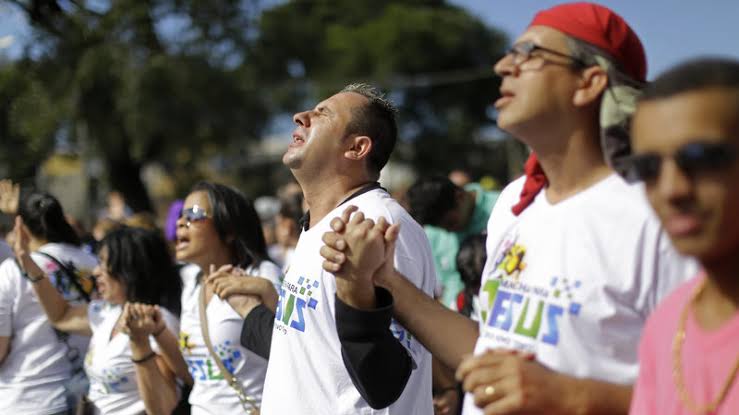
Bolsonaro succeeded in reconciling the enemy images of different groups: Corrupt people, leftists, recipients of state transfer payments, minorities and criminals were united by the viewpoint of the right that they would enrich themselves at the expense of others without doing anything themselves.
In Brazil, ‘furar a fila’ means pushing forward in the queue. The social advancement of millions of poor people and the improvement of the living conditions of members of many political minorities in PT times represented for many the same thing as the enrichment of criminals and corrupt people.
They were considered undeserving and at the expense of the supposed high performers. Behind the election of Bolsonaro is radical liberalism that rewards personal achievement and courts the myth that everyone forges their own happiness. Bolsonaro was elected to restore the old order and to put those “illegitimate upstarts” in their place who had “pushed forward” in recent years and called the established order into question.
Bolsonaro promised Judge Moro posts
The politicization of the corruption investigation, with its supposed fight against the collapse of the state, played a major role in Bolsonaro’s victory. Sérgio Moro was rewarded for his work in 2019 with the post of Minister of Justice and Safety. The office is said to have been offered to him even before the election, according to the evaluation of his telegram chats.
“There are conversations in which Moro exchanges views [with a colleague] before the election about an offer by Bolsonaro to join the government if he wins. That was before the runoff, after the primary,” said investigative journalist Glenn Greenwald of ‘The Intercept’ in an interview.
In November 2018, Bolsonaro publicly thanked him: “Congratulations Lava Jato. My answer to you is Sérgio Moro as Minister of Justice. Equipped with all the resources.” Bolsonaro guaranteed him complete freedom in the performance of his duties.
But Moro’s political reputation and support in the judicial system have been crumbling since the Investigative media outlet ‘The Intercept’ began publishing the chat sessions on the trial and sentencing between the judge and Lava Jato prosecutors in June 2019.
Based on the publications, the second chamber of the Supreme Court handed down Moro’s verdict against an ex-head of Petrobras, Aldemir Bendine, at the end of August this year. The Supreme Justices found violations in the conduct of Moro’s trial that would have had a negative impact on the verdict against the defendant.
Observers believe that the verdict will serve as a precedent and trigger a chain of appeals. One hundred and forty individuals convicted by Moro could benefit from this decision, about 88 percent of his trial decisions at the Federal Court in Curitiba.
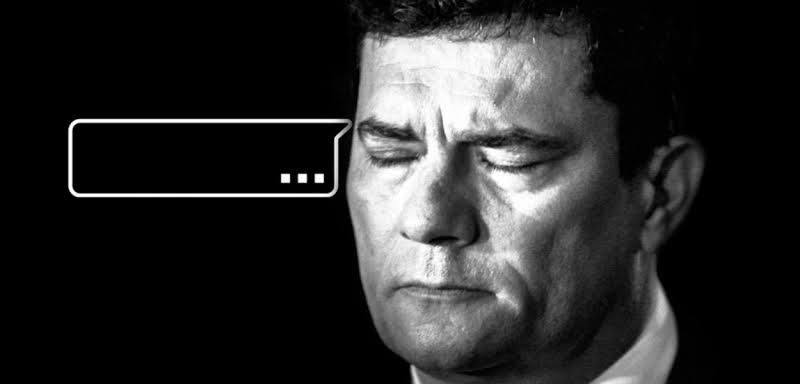
Court decisions against Lula could also be overturned. Bolsonaro can benefit from this. The public focus on the Lava Jato trial is a distraction from the investigations against his own family and at the same time keeps the popular Moro in check.
Four federal police investigations are underway into the president’s eldest son, Senator Flávio Bolsonaro, because of the “exponential increase in assets” in recent years, one of which has been dormant for half a year – under the responsible minister Moro.
As Moro’s fame fades, Bolsonaro is also getting rid of one of the most promising competitors for the coming presidency. There is a danger that Bolsonaro will say goodbye to other supposedly civilian forces in the cabinet and that his policy will take on even more authoritarian features.

